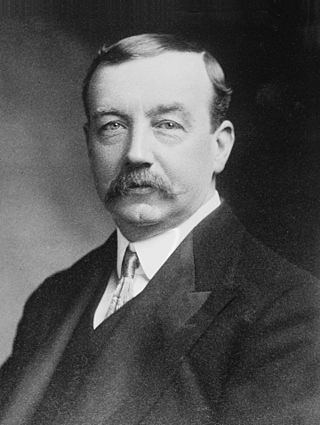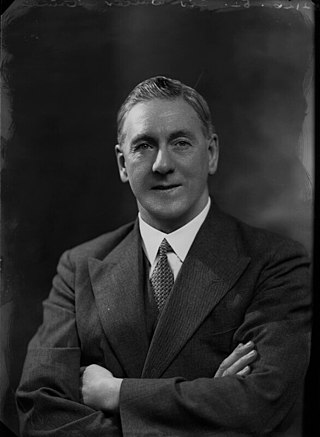Related Research Articles

Arthur Henderson was a British iron moulder and Labour politician. He was the first Labour cabinet minister, won the Nobel Peace Prize in 1934 and, uniquely, served three separate terms as Leader of the Labour Party in three different decades. He was popular among his colleagues, who called him "Uncle Arthur" in acknowledgement of his integrity, his devotion to the cause and his imperturbability. He was a transitional figure whose policies were, at first, close to those of the Liberal Party. The trades unions rejected his emphasis on arbitration and conciliation, and thwarted his goal of unifying the Labour Party and the trade unions.

Walter McLennan Citrine, 1st Baron Citrine, was one of the leading British and international trade unionists of the twentieth century and a notable public figure. Yet, apart from his renowned guide to the conduct of meetings, ABC of Chairmanship, he has been little spoken of in the history of the labour movement. More recently, labour historians have begun to re-assess Citrine's role.
Sir Kenneth Joseph Jackson was a British trade unionist who was the General Secretary of the Amalgamated Engineering and Electrical Union (AEEU) from 1995 until that union's merger with the Manufacturing Science and Finance (MSF) union to form Amicus in 2001. He subsequently became one of the Joint General Secretaries (JGS) of Amicus.
Sir Leslie Cannon CBE was a prominent British trade union official and served as General President of the Electrical Trades Union from 1963 to 1970. He was born in Wigan, the son of a coal miner, and became a Communist activist, and trade union leader; member of Electrical Trades Union Executive Council, North Lancashire and Merseyside, 1948–1954. He left the Communist Party of Great Britain in 1956. In 1961 he uncovered an ETU ballot rigging scandal, and successfully sued the union. Cannon became president of the ETU in September 1963, a post left vacant by disgraced former president Frank Foulkes.

The Electrical, Electronic, Telecommunications and Plumbing Union, known as the EETPU, was a British trade union formed in 1968 as a union for electricians and plumbers, which went through three mergers from 1992 to now be part of Unite the Union.
The Chemical Workers' Union was a trade union in the United Kingdom.

Frank Chapple, Baron Chapple was general secretary of the Electrical, Electronic, Telecommunications and Plumbing Union (EETPU), a leading British trade union.
Eric Albert Barrett Hammond, OBE was general secretary of the EETPU, a British trade union, from 1984 to 1992.
Joseph James Vaughan was a British politician.

The Friendly Society of Iron Founders of England, Ireland and Wales (FSIF) was an early trade union representing foundry workers in the United Kingdom.

The Electrical Trades Union (ETU) was a trade union representing electricians in the United Kingdom, much of its membership consisting of wiring fitters and telephone engineers.
Charles Lovell was a British trade unionist.
James Rowan was a British trade union leader.
Francis Ernest Sims was a British trade unionist.
Alfred Ewer was a British trade unionist.
Albert Williams was a British trade unionist.
Albin Taylor (1866–1936) was a British trade union leader.
Hugh P. Bolton was a British trade union official who also served on the National Executive Committee of the Labour Party.

The Bookbinders and Machine Rulers' Consolidated Union (B&MRCU) was a trade union representing people involved in the manufacturing of books in the United Kingdom.
Arthur George Field was a British trade unionist and socialist activist.